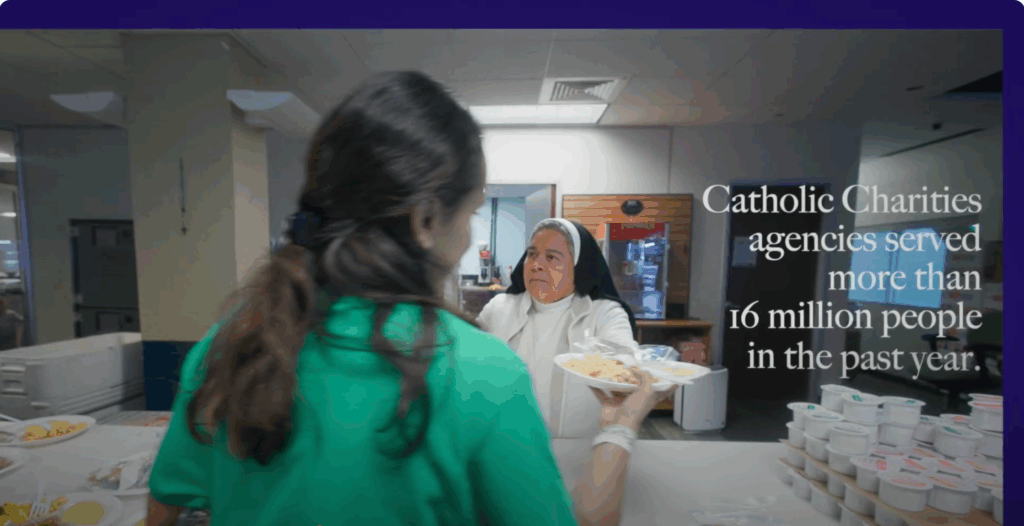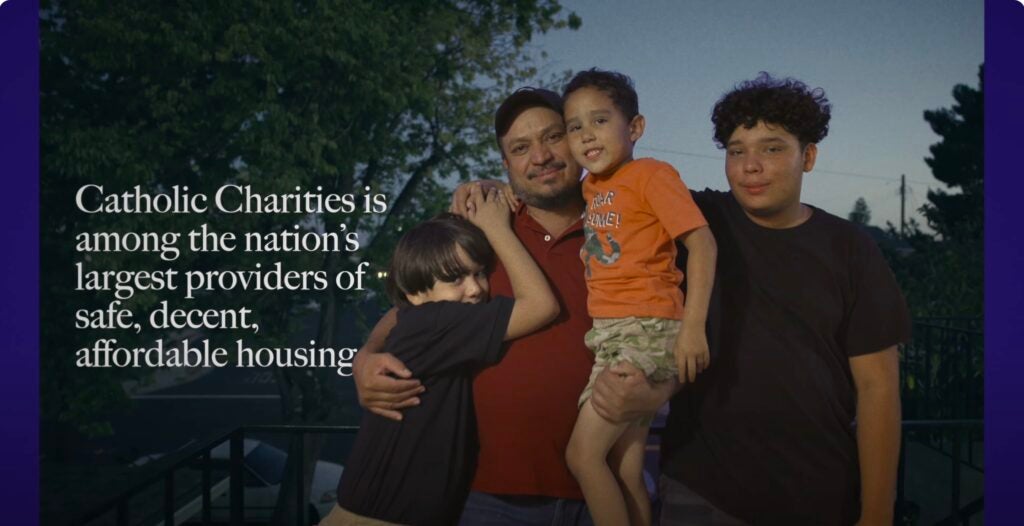
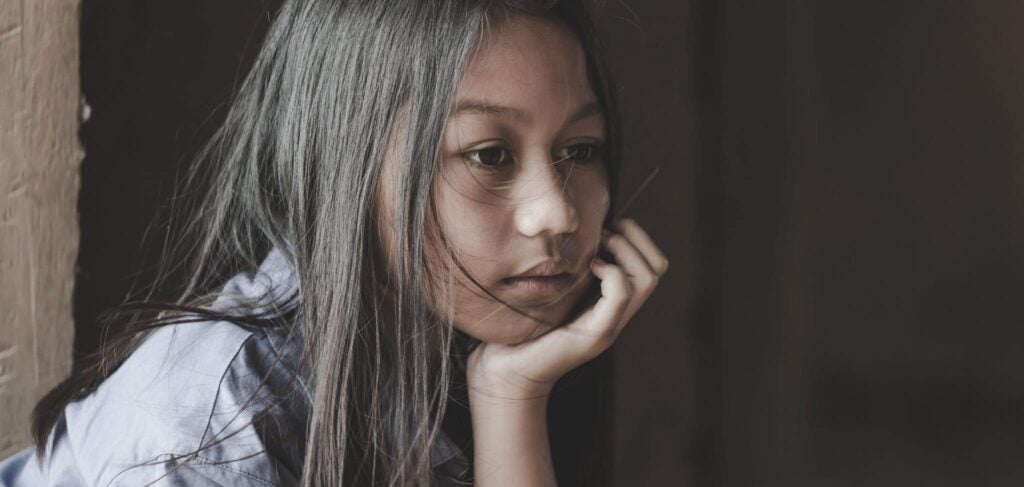
By David Werning, Managing Editor
“You don’t have to be in chains to be a human trafficking victim.”
So says Ivonne Vadi, a case manager at the Bakhita Empowerment Program of Catholic Charities, Diocese of Palm Beach, Florida (CCDPB).
The Bakhita program, named after Saint Josephine Bakhita, patron saint of human trafficking survivors, has two main goals: to help survivors attain self-sufficiency after being rescued from their traffickers and to raise awareness about the realities of trafficking.
Although both goals require great effort and collaboration with community partners, raising awareness may be the greater challenge despite notorious and well-publicized cases like Jeffrey Epstein, who was imprisoned for trafficking minors in Palm Beach and New York.
Part of our mission is to expose the stereotypes in order to help people recognize and avoid human trafficking,” Vadi said. “Human trafficking takes place in front of you, in all walks of life. We’ve seen some very wealthy people being trafficked as well as very poor people, young and old.
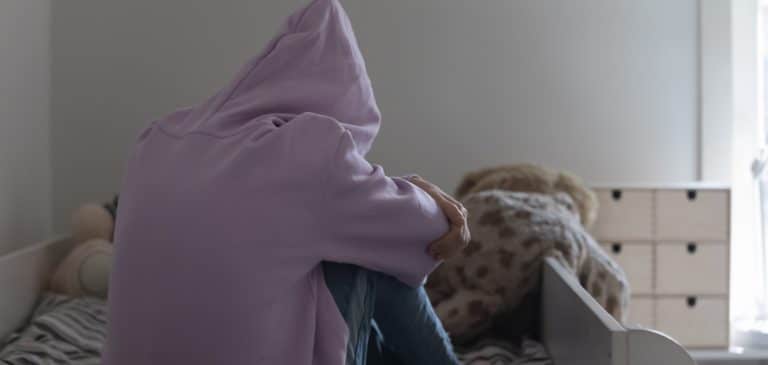
CCDPB started serving victims of human trafficking in 2011 as part of its refugee resettlement program, but its service increased greatly in 2016 after receiving funds – along with the Palm Beach Sheriff’s Office – from a three-year grant from the U.S. Department of Justice Office of Victims of Crime.
“The grant enabled us to build a tight knit and large collaborative with the law enforcement side,” said Carol Rodriguez, program development and quality director at CCDPB. “Law enforcement helps in the rescue of victims and then we’re there when [the victims] are rescued to care for them and to help rebuild their lives.”
When survivors enter the Bakhita program, the first step is an in-depth assessment to determine their needs. Since traffickers often use drugs or exploit an existing drug addiction to keep victims compliant, most survivors need a detox program before any other service. Safe and stable housing is another priority so that survivors have a good environment to continue healing and to build job skills.
Rodriguez said that most of CCDPB’s cases involve sex trafficking since the police have been more focused on that and it can be easier to see. Labor trafficking is also a problem, particularly in agricultural areas where laborers who may not have documents can be easily exploited. Traffickers threaten to call immigration authorities and they use tactics like intimidation or deducting expenses for room and board from workers’ pay so that the workers never get out of debt.
Rodriguez said that despite the challenges, she thinks CCDPB and law enforcement are making a big difference. Also, the more people in the community are aware of the program, the more difficult it is for traffickers.
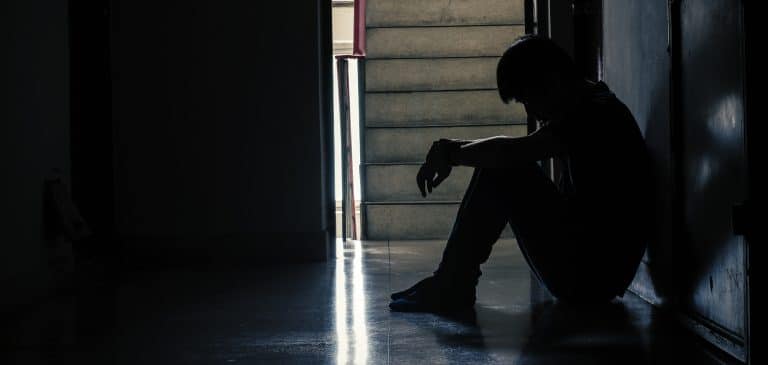
We have some pretty strong partnerships in Palm Beach County, and we’re helping to make the community aware that this is going on right here, even in nice neighborhoods,” Rodriguez said. “We’re also part of the Palm Beach County Human Trafficking Coalition, and we do a lot of training and awareness activities to help increase awareness and identify victims.
Vadi’s experience working with survivors in the Bakhita program corroborates the experience of Rodriguez, especially in terms of growing awareness on the part of the public. However, Vadi does see a population that deserves more attention.
“We realized that the next best thing to do, now that there is more awareness,” Vadi said, “is to take [training and education resources] to the youth, to young people, so that they know how to identify their peers who are being trafficked and how to stay away from it themselves.”
As was the case with Epstein’s victims, the people being trafficked are often older children and teenagers who have some kind of vulnerability that can be exploited: It may be a broken home or a drug addiction or even a desire to be loved. Traffickers seize on these vulnerabilities, and in many cases the young victims go about their normal routines, like going to school, but tell no one about what they are experiencing.
“One thing we’ve learned through Bakhita is that there are many misconceptions about trafficking,” Vadi said. “People say how can they be trafficked if they’re in school. Well, you can be captured through your mind, you can be groomed, you can be threatened, someone can even have a family member using them.”
To combat these situations, the Bakhita program staff are creating material that is age-appropriate for high school youth. Training and resources for adults use the language of medical professionals and therapists, but this language does not work with children.
We want the students to recognize the things they see in their classrooms,” Vadi said. “Why does my 13-year-old friend have a job; why is he carrying money around in his school bag; why can’t he ever come over to my house after school?
If the awareness of students can be increased, the hope is that they can recognize problems that adults may miss. With awareness growing generally in Palm Beach County and with the assistance of the younger generation looking out for each other – not to mention the partnerships that are already active with law enforcement and the coalition to end human trafficking – CCDPB has a firm grasp of the problem and great solutions already active and being planned. To learn more about the Bakhita program, visit CCDPB’s website at www.ccdpb.org/programs/anti-human-trafficking/.
